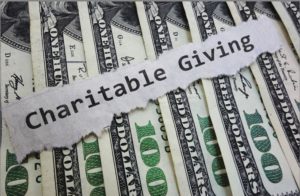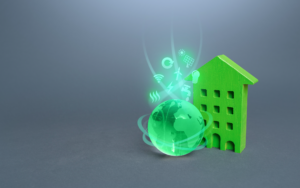The U.N. Sustainable Development Goals (SDGs)
In 2015, world leaders representing the 193 United Nations Member States created and agreed to a list of 17 Sustainable Development Goals (SDGs) and aimed to achieve them by 2030. The chief aims of the SDGs are to end poverty, ensure prosperity, and protect the planet, all on a global scale.
The plan hinges on the mobilization of a global partnership to bring about the ambitious sustainability efforts with the participation of all countries and stakeholders. The needs are the greatest for the poorest and most vulnerable people on whom the U.N. has put a specific focus if they are to deem the SDGs successful.
The SDG List
- End poverty in all its forms everywhere
- End hunger, achieve food security and improved nutrition and promote sustainable agriculture
- Ensure healthy lives and promote well-being for all at all ages
- Ensure inclusive and equitable quality education and promote lifelong learning opportunities for all
- Achieve gender equality and empower all women and girls
- Ensure availability and sustainable management of water and sanitation for all
- Ensure access to affordable, reliable, sustainable and modern energy for all
- Promote sustained, inclusive and sustainable economic growth, full and productive employment and decent work for all
- Build resilient infrastructure, promote inclusive and sustainable industrialization and foster innovation
- Reduce inequality within and among countries
- Make cities and human settlements inclusive, safe, resilient and sustainable
- Ensure sustainable consumption and production patterns
- Take urgent action to combat climate change and its impacts*
- Conserve and sustainably use the oceans, seas and marine resources for sustainable development
- Protect, restore and promote sustainable use of terrestrial ecosystems, sustainably manage forests, combat desertification, and halt and reverse land degradation and halt biodiversity loss
- Promote peaceful and inclusive societies for sustainable development, provide access to justice for all and build effective, accountable and inclusive institutions at all levels
- Strengthen the means of implementation and revitalize the global partnership for sustainable development
How Will the SDGs Be Achieved?
All 17 goals are admirable – the needs are prevalent.
According to the United Nations, each country has primary responsibility for its own economic and social development. Beyond that, the wealthier countries are called to support the more vulnerable countries through new technologies, financial resources, public goods, building private sectors, and helping to organize civil society organizations, all on cooperative and favorable terms.
The primary vehicles for implementation as noted by the U.N. are international public finance and national parliaments. The importance of these two means of supporting and strengthening individual states cannot be overstated, as the development of low- and middle-income countries rely on the evolution of these two types of agents. To encourage these localized efforts, the U.N. has pledged to provide adequate resources necessary for achieving the SDGs and global sustainable development.
5 Ways to Help Reach the SDGs in Your Life
Not everyone can dedicate their lives to social impact work, but that doesn’t mean there aren’t contributions to be made. Five of the more practical ways to support the U.N.’s efforts are:
- Educate yourself and your sphere
- Start or contribute to fundraising campaigns (BrightFunds and Global Impact SDG Fund make it easy)
- Promote volunteering, set an example for others
- Do more good by doing less harm
- Use your connections to empower changemakers
By mobilizing and educating your sphere, you can do your part to ensure your piece of the world is committed to the SDGs. Global efforts are not achieved by a few individuals making a handful of big decisions. Global efforts are achieved by many individuals making millions of small decisions that may be inconsequential on their own but, when added together and given enough time, change the world.



